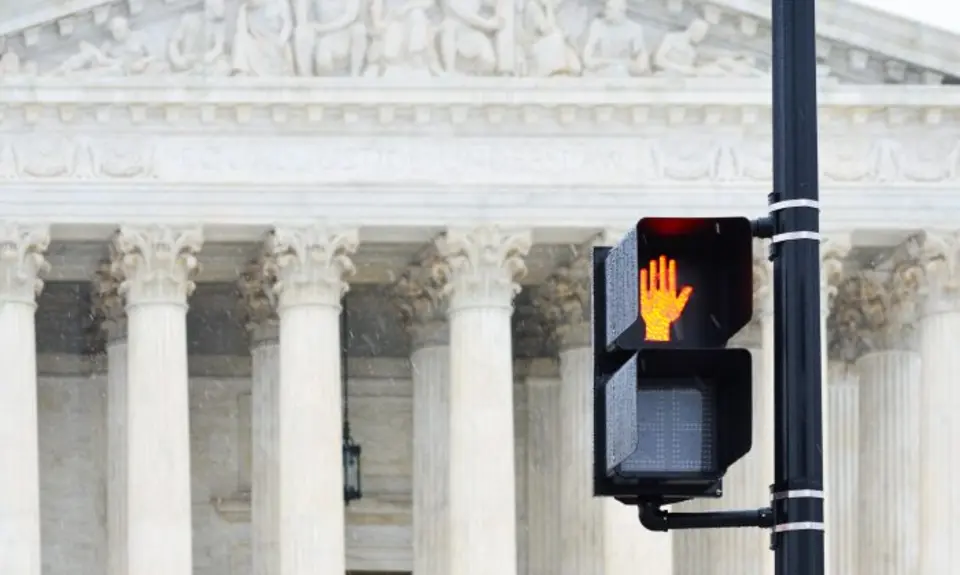This morning, a unanimous Supreme Court rejected Judge Neil Gorsuch’s formula that lowers the bar on what schools must do to educate children with disabilities. Since this happened while senators were questioning him at his confirmation hearing, it provided an excellent opportunity to discuss why Gorsuch had adopted an obviously harmful standard that is so clearly divorced from the Individuals with Disabilities Education Act (IDEA) that not even one justice agreed with him.
In the Gorsuch case, a child with autism was clearly not making sufficient progress in public school. Teachers helped him develop some skills at school, but were unable to help him learn to use those skills anywhere outside of the school. His parents argued that this was insufficient and sought a particular remedy, but Judge Gorsuch wrote a panel ruling stating that all the school had to do to fulfill its legal responsibilities is to show “merely more than de minimis” progress.
In response to questioning by Sen. Durbin, Gorsuch said that he had been bound by circuit precedent, which he said had set the standard as “more than de minimis.” Gorsuch claimed that many of his IDEA cases were based on Tenth Circuit precedent that he had to follow.
Fortunately, Sen. Durbin had all of the facts before him, so he knew what Gorsuch had left out:
We know that words are important, and they can make a critical difference in a person’s life. You can ask Alphonse Madden [the truck driver fired for not dying] that question. The word that you inserted into the circuit standard when it came to these cases was “merely.”
“Merely.”
I would say most people reading that would say you have pushed the de minimis standard even further down the standard pole. And it was that word, “merely more than de minimis,” that was specifically overruled by the Supreme Court. … If you just wanted to stick with Tenth Circuit precedent …why would you add the word “merely” to modify that?
Gorsuch didn’t answer the question asked of him. Instead, he repeated his assertion that he was simply following circuit precedent, then (straw man alert!) said any accusation that he has some animus against children would be mistaken.
Sen. Durbin noted that words matter, because they’re the only way to look into his heart.
When I look at that word “merely,” it troubles me. Do I believe you love your family and love children? Of course you do. But when it comes to applying the law to a truck driver blackballed for life from driving a truck, when it comes to applying the law when it comes to a family, I cannot imagine the pain they’re going through with an autistic child. I want to try to understand what Neil Gorsuch’s heart is leading him to.
You’ve told us time and again “no place for my heart here. This is all about the facts, this is all about the law.”
I don’t buy that. I don’t think that the decisions of courts are so robotic, so programmatic, that all you need to do is look at the facts and look at the law and there’s an answer. If that was the case, there’d never be a dissent.
Sen. Durbin is, of course, correct. The answers to difficult legal questions don’t just magically appear.
And neither did any responsive statement by Gorsuch to Senator Durbin’s question.
Nor did he respond to Sen. Klobuchar’s follow-up. She pointed out the fallacy of his earlier claim to Sen. Durbin that his decision was based on binding 10th Circuit precedent. She also cited Gorsuch yesterday defending his decision to occasionally write controversial and disturbing concurrences that needlessly address major constitutional issues and urge the reversal of Supreme Court precedent.
Why pick Gutierrez-Brizuela [where he sharply criticized Chevron deference] or Riddle v. Hickenlooper [urging the Supreme Court to make it even harder to regulate money in politics] to do a concurring opinion, and not a case like this one that is really about the kind of services that a child with autism is going to get?
His response was to say that he has ruled for and against families with children with disabilities, based on precedent. In other words, he pretended that Sen. Klobuchar hadn’t asked her question.
So that leaves the American people asking:
- Why won’t he answer these very basic questions?
- Given the devastating impact on children with autism and their families throughout the Tenth Circuit of what he cited as precedent, why not write a separate concurrence to urge the Supreme Court to take up the issue?
Regardless of the answer to those specific questions, the overall message is clear. Gorsuch’s legal analysis on this important issue to families across the country was fundamentally wrong and was overruled by a unanimous Supreme Court—showing again why his nomination to the Court should be rejected.
